United Way NSV’s Valley Assistance Network: Finding Pathways to Financial Stability
Winchester, VA – Over 40% of local families do not earn enough money to meet their basic needs. These families who are walking a financial tightrope, don’t qualify for government assistance, and often have nowhere to turn when they need help. They are unable to save for college, a home, or retirement, and can be completely devastated by a surprise expense like a flat tire. Now, United Way of Northern Shenandoah Valley (NSV) is here to help. In 2017, United Way NSV took part in an ambitious statewide study called ALICE ® (Asset Limited, Income Constrained, Employed), a Rutgers University run report, focusing on financial stability and roadblocks to success in every community in the state of Virginia. Findings for United Way NSV’s catchment area were staggering, showing that more than 50% of households in Winchester City are in poverty or ALICE, with other communities including Frederick County (36%), Shenandoah County (44%), Clarke County (40%), and Page County (45%) also showing high levels of financial instability.
To address the obstacles that prevent hard working families from getting ahead financially, United Way NSV launched Valley Assistance Network, a new program that connects families to resources to meet their basic needs, while gaining the financial capability to plan for, and accomplish, their long-term financial goals.
“Our community has incredible services to help people in need, but most ALICE families don’t know where to turn for help. Our clients reported feeling overwhelmed as they juggle the demands of work and family life.” Said Jennifer Hall, Director of Community Engagement, United Way NSV.
While VAN is still in the early stages of development, the program has already collected outstanding outcomes. In just six months, the program served 204 clients and made 525 referrals to community partners. Thirty-percent of clients reported being stable after receiving services. More than 80% of all referrals are related to financial stability, with the number one issue being housing insecurity.
United Way NSV is committed to working to help people achieve financial stability. Phase two of the program focuses on helping clients manage their finances and create a pathway to financial freedom.
During a Ribbon Cutting Ceremony, United Bank presented a $5,000 check to United Way to assist with financial management programs. “The financial counseling programs will be a critical piece in im
proving the income and education of people in our community,” Hall said.
Through VAN’s mentoring programs, clients engage in financial goal setting delivered one-on-one or in a group setting. Mentored clients tap into VAN’s service offerings and are demonstrating impressive gains. One client who works with a mentor through Virginia Cooperative Extension said of her experience, “I felt like I had a whole team there to support me.”
Clients now enter intake information directly into a computer that uses a series of questions to assess a client’s needs so staff and volunteers can map the appropriate services. For example, families that have high debt, are unbanked or routinely pay late bill fees, will be directed to financial education or credit repair services, once they receive services to remedy their crisis.
For United Way NSV, the launch of VAN has had a profound impact. “We have extended our reach and visibility and have greatly deepened our partnerships,” said Nadine Pottinga, President and CEO. “We hope to take the lessons to other endeavors as we continue our mission to nurture those communities most in need.”
